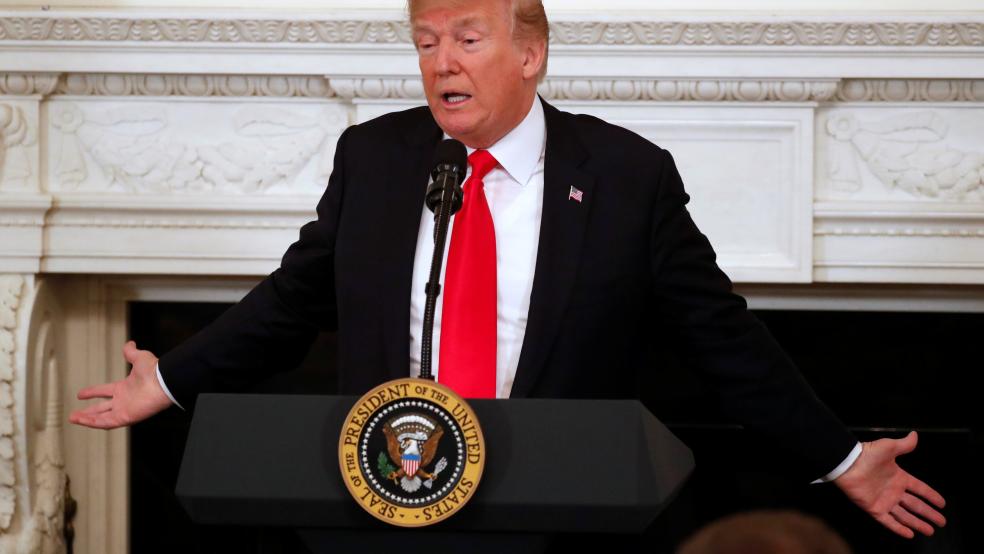President Donald Trump spoke with Republican leadership this week about the possibility of rolling back part of the $1.3 trillion government spending bill that he signed into law less than two weeks ago, according to a senior House GOP aide.
Trump discussed the idea on a phone call with House Majority Leader Kevin McCarthy this week, while staff from House Speaker Paul Ryan's office have been working with the administration on the concept, the aide said. The move would rely on a little-used executive power known as "rescission" that allows the president to ask Congress to cut spending it has already authorized.
"It's a bit unclear how this would play out since it hasn't happened in a long time," the aide said. "That said, this is an idea congressional leaders are taking seriously."
Still, the request is unlikely to make it very far on Capitol Hill. The spending deal passed both chambers with bipartisan support after weeks of delicate negotiations. Republicans would need support from Democrats to make any changes to the legislation now.
But even the prospect of backtracking on the massive spending deal could help the president — and GOP leadership — quell criticism from the party's conservative flank over its high price tag. The House Freedom Caucus opposed the legislation and had urged Trump to veto it. In a dramatic 11th-hour tweet, Trump toyed with the idea, but eventually opted to sign the bill, albeit with reservations.
"I say to Congress, I will never sign another bill like this again," Trump told reporters last month. "I'm not going to do it again."
To roll back the spending deal, the White House would first have to make a formal request to Congress. According to the Congressional Research Service, the reduction would be based on a formula crafted by the Office of Management and Budget, and it could include exceptions for specific programs.
Congress would then have 45 days to act on the request. If it doesn't, the money must be spent and the president cannot ask for another reduction.
This article originally appeared at CNBC.com. Read more from CNBC:
Peter Navarro Says Trump's Trade Policies Are 'Good for the Market,' but Economists Aren't Buying It
Amazon Could Do a Lot to Dix the US Health-Care System — but Walmart Could Do More
Trump Tariffs on Appliances, Electronics Will Hit American Consumers, Retailers Warn




